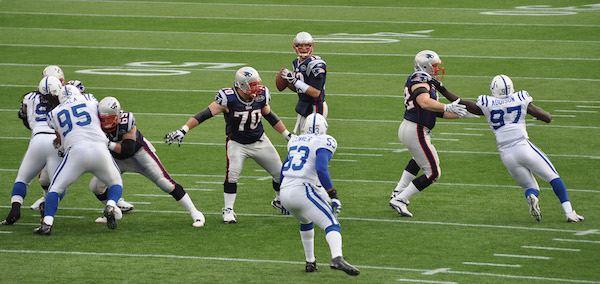Dear Sports Fan,
I saw that a U.S. federal judge overturned the NFL’s suspension of Tom Brady the other day. This leads to my question: why was our legal system even involved in Deflategate? Don’t they have better stuff to do than rule on a football player’s suspension?
Thanks,
Marcie
Dear Marcie,
You’re right to be skeptical. The government does sometimes get involved in the sports world in strange and semi-ludicrous ways. Take, for example, the College Football Playoff Act of 2011 or the spectacle of baseball sluggers in suits testifying in front of Congress about whether they stuck needles into their butts. In this case, however, despite the judge’s reluctance to rule on the matter, there is a good legal reason for him to have been involved.
Football players are unionized. Their organization, the National Football League Players Association (NFLPA) periodically negotiates with the owners of the 32 NFL teams over the terms of their employment. This is called collective bargaining. Among the terms they negotiate are the penalties for various infringements and the process by which players may be penalized. Once the two sides (owners and players association) agree, the result should be a nice little self-contained world where every potential dispute between employer and employee has a prearranged solution. The only time the real legal system should get involved is when one side claims that the other side isn’t following the rules they agreed to as part of the original collectively bargained deal. That’s exactly what Tom Brady claimed – that the NFL was not following the rules they agreed to follow the last time they collectively bargained with the players union – and that’s what Judge Richard Berman of the United States District Court ruled.
Throughout the time the case was in Judge Berman’s court, he pushed the two sides to agree on a settlement rather than rely on him to make a judgement. To some extent, that’s probably a normal practice in contract disputes such as this, but another motivation may have been that he, like you, felt a little sheepish about a U.S. federal judge ruling on a football player’s suspension. Don’t let the football fool you though, if you ignore what Brady does for a living, you’re left with an employee claiming that his employer tried to unfairly and unlawfully punish him in a way which would not only damage his professional reputation but also cost him $1,882,352. That’s worth dealing with in court, isn’t it?
Thanks for your question,
Ezra Fischer

